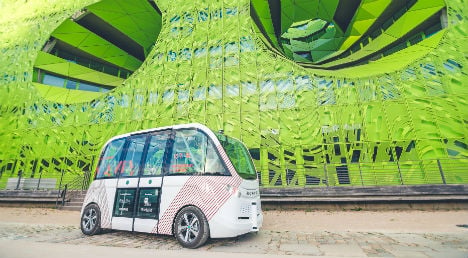The journey was a one-off and was only possible after permission had been granted by the Ministry of Transport. The small bus is fully electric and functions without a driver.
Salzburg’s councillor for transport Hans Mayr said that the autonomous minibus is not intended to replace suburban trains or the regular bus service but will be a supplementary mode of transport to help people get from the bus or train stop to their homes. “It's about the first and the last mile, which is often the reason why people still travel by car and don’t switch to public transport.”
Mayr added that the so-called Mikro-ÖV driverless bus should be particularly helpful for people living in more rural areas. “It will help them to reach their nearest station and because it’s driverless we can have a more frequent timetable at a reduced cost,” he said. The bus could also be used as a kind of on-call taxi service.
The Navya Arma model electric minibus is made by a French manufacturer and currently costs €250,000, although Mayr expects prices to drop with increased production.
It can transport up to 15 passengers and drive safely up to a maximum speed of 45 km/h. At just 4.8 meters long and 2.05 meters wide it’s suitable for traversing narrow streets. Its ‘eyes’ are GPS, cameras and LIDAR sensors which scan the surroundings. This allows the vehicle to record and react to obstacles along the route such as construction sites, people, animals and other vehicles.
The shuttle bus drove slowly and cautiously during its test journey through Salzburg’s old town, and a conductor was on board who could take over if necessary.
The Salzburg Research company has applied for a test permit for autonomous vehicles in public transport and wants to test the minibus throughout the province to see how it behaves in snow and ice and what the long-term maintenance and operation costs are.
In Switzerland, PostBus temporarily suspended a trial of its driverless buses in the city of Sion after one of them collided with a van in September. The autonomous shuttle bus was carrying three passengers. Both vehicles sustained light damage but no one was injured.
And in Germany, an electric Tesla car which was driving on autopilot on a motorway collided with a tourist bus. The German transport regulator has since written to Tesla, asking it to stop advertising the autopilot function on its cars, as it leads to false customer expectations.


 Please whitelist us to continue reading.
Please whitelist us to continue reading.
Member comments